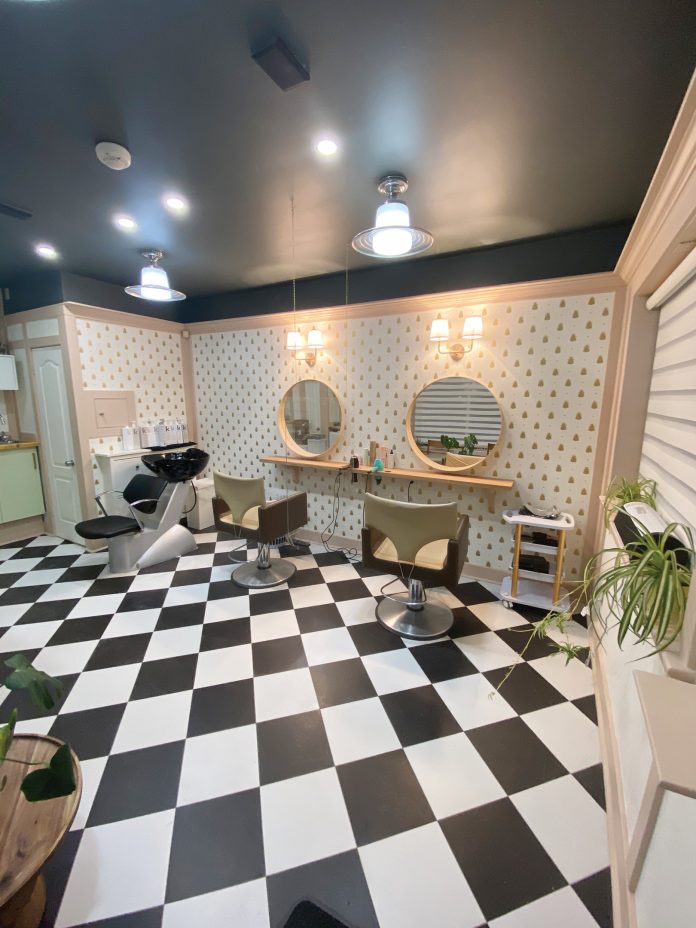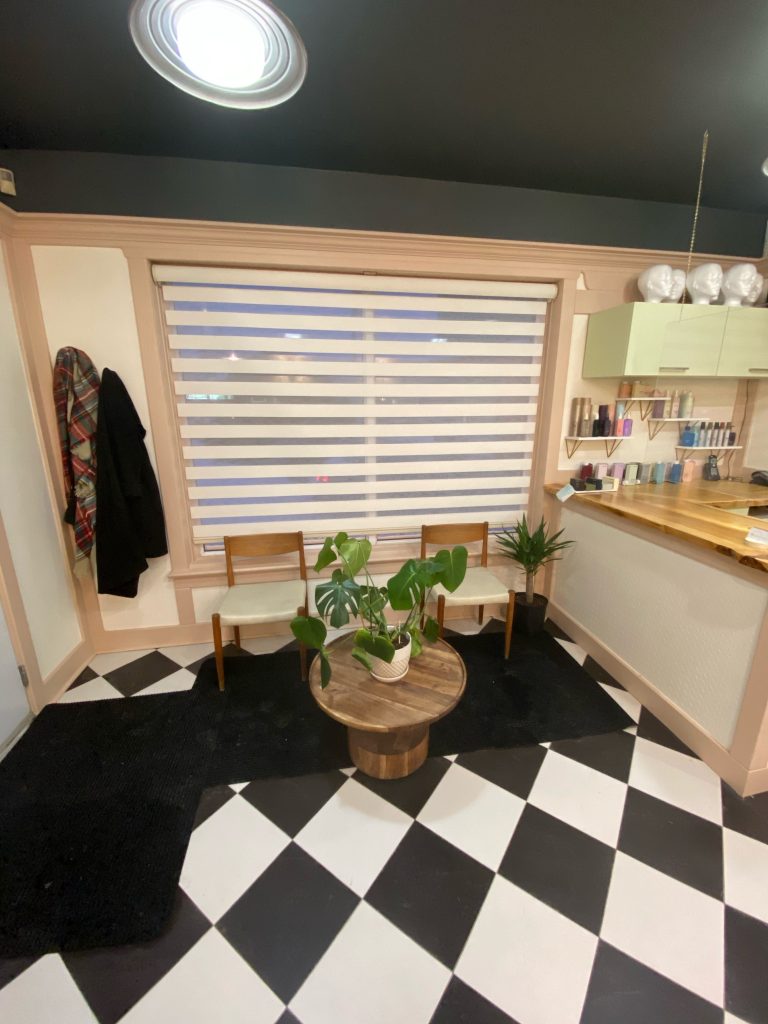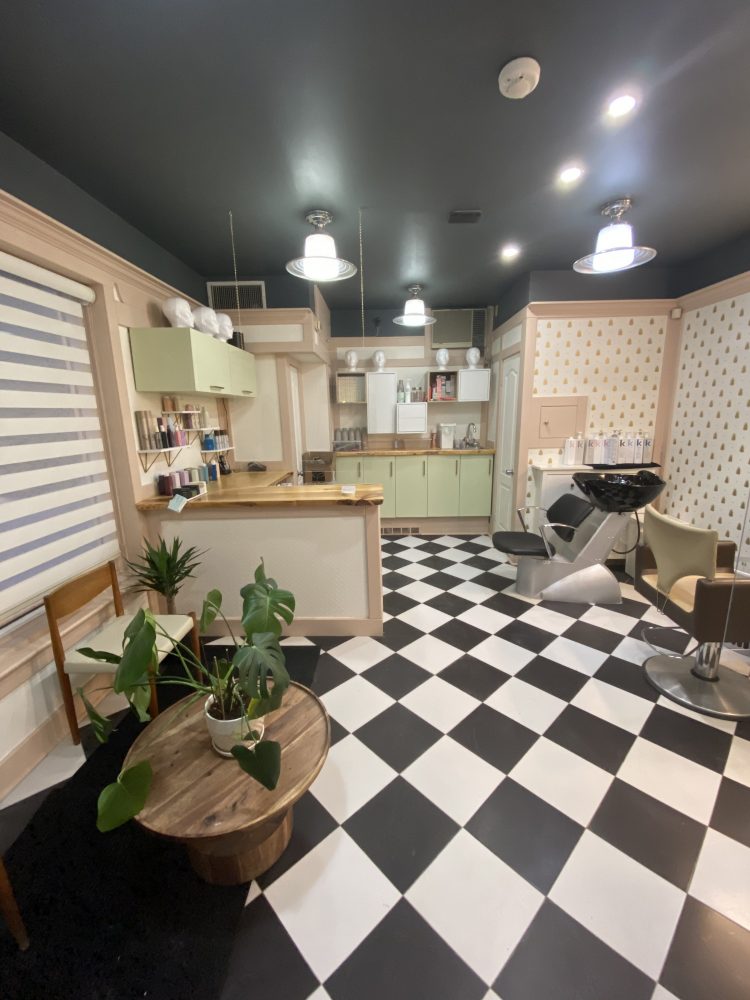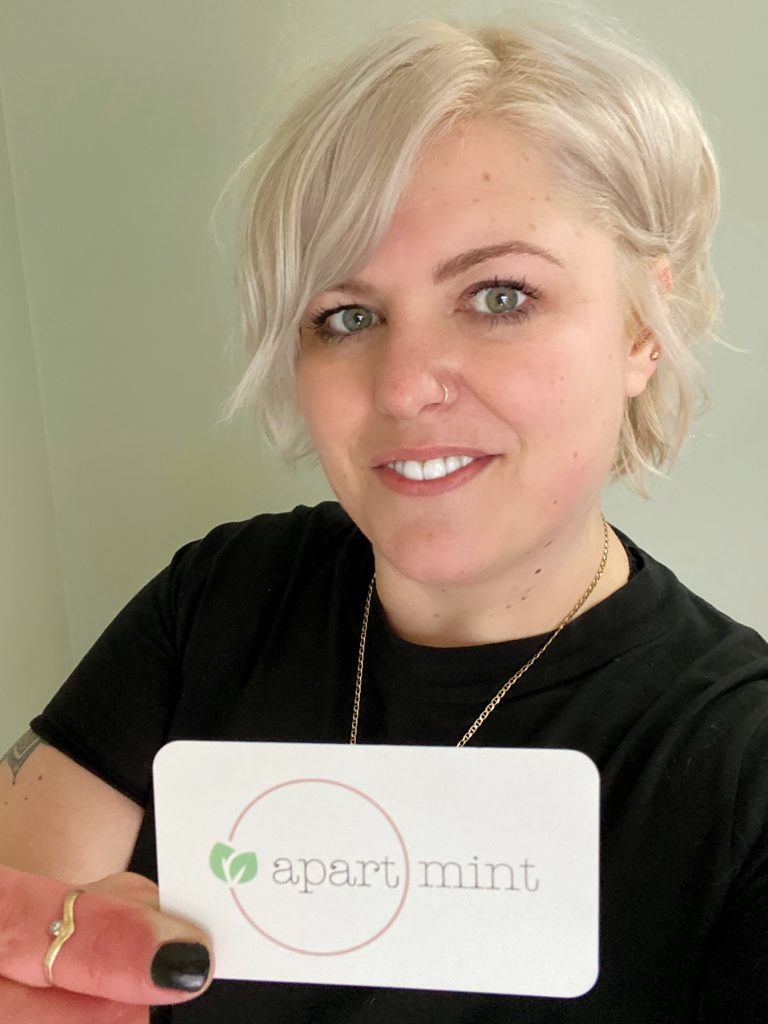
By Maureen McEwan
Two years ago, Kristen Atkinson was diagnosed with stage 4 Hodgkin’s lymphoma and began months of chemotherapy. The owner and operator of Hintonburg’s Mint Hair Studio was 36 years old at the time.
During the process, one of the hardest things for her was losing her hair.
“The day that I shaved my head was probably the worst day of my life, aside from finding out that I had cancer,” she said.
Atkinson has been a hairstylist for 20 years: Hair is a big part of her identity and “wrapped up in every facet” of her life.
Losing your hair can be one of the toughest parts psychologically because you lose your anonymity and your “protection from the whole world knowing that you’re sick,” Atkinson said. It was also when reality set in for her.
“There’s no turning back, there’s no running from it, there’s no hiding from it. It’s happening,” she said.
When she was going through chemotherapy, Atkinson started thinking of ways that she could give back and help others.
“I decided, after I was well and back to work, that I would like to help in the hair department because that’s what I do best.”
Atkinson, now in remission, opened ApartMint, a second location at 7 Sherbrooke Ave., across the street from Mint Hair Studio, on Feb. 17. The salon (formerly The Brooke Barbershop) offers standard hair services like cuts, colour and styling as well as cancer care services, like head shaves, wig consultations and fittings, scalp care and more. The goal is to help others navigate their “cancer journey.”
When she first began shopping for her own wigs, Atkinson said, she didn’t have the best experience. The salesperson she encountered didn’t offer much empathy and the “personalization” was missing.
“I think that I, being a person who has gone through it, can bring the empathy and [the care to do] this to the table that somebody else couldn’t,” she said. “I think it’s less about me being an expert on wigs and hair loss, and more about me being somewhat of a ‘cancer curator.’”
“You find out you have cancer, you’re worried about losing your hair, you call me and I get you set up,” she added.
The ApartMint space is small, offering privacy to clients, with only Atkinson and one other staff member (assistant or receptionist) on site occasionally.
“It’s super cozy and cute. It’s about 350 square feet. It’s really quite tiny, and so typically it will just be me here,” she said.
“It’s just a space where you can feel safe to be however you need to be about the situation because everybody handles it very differently,” she added.
During the pandemic, she said it is especially important that immunocompromised clients feel safe. ApartMint is able to manage many risks because the space is small, compared to regular salons, and health will be a priority for staff.
“Everybody here would be taking it seriously because we’re all in the same boat in terms of being immunocompromised,” she said.
“So emotionally safe but also physically safe, which is kind of an important thing when you are fighting for your life,” she added.
With new clients, Atkinson will meet with them to assess their needs and to make a plan. They might be looking to arrange a series of haircuts and to get wigs set up, or they may simply want a head shave and some scalp care.
She will serve regular salon clients at ApartMint but there are designated “Cancer Care” days on Mondays and Tuesdays.
“Everybody who will be here on the Cancer Care days will be in some stage of cancer and the situation.”
Down the road, she hopes that the space can act as a hub for cancer survivors to connect with one another and the community.
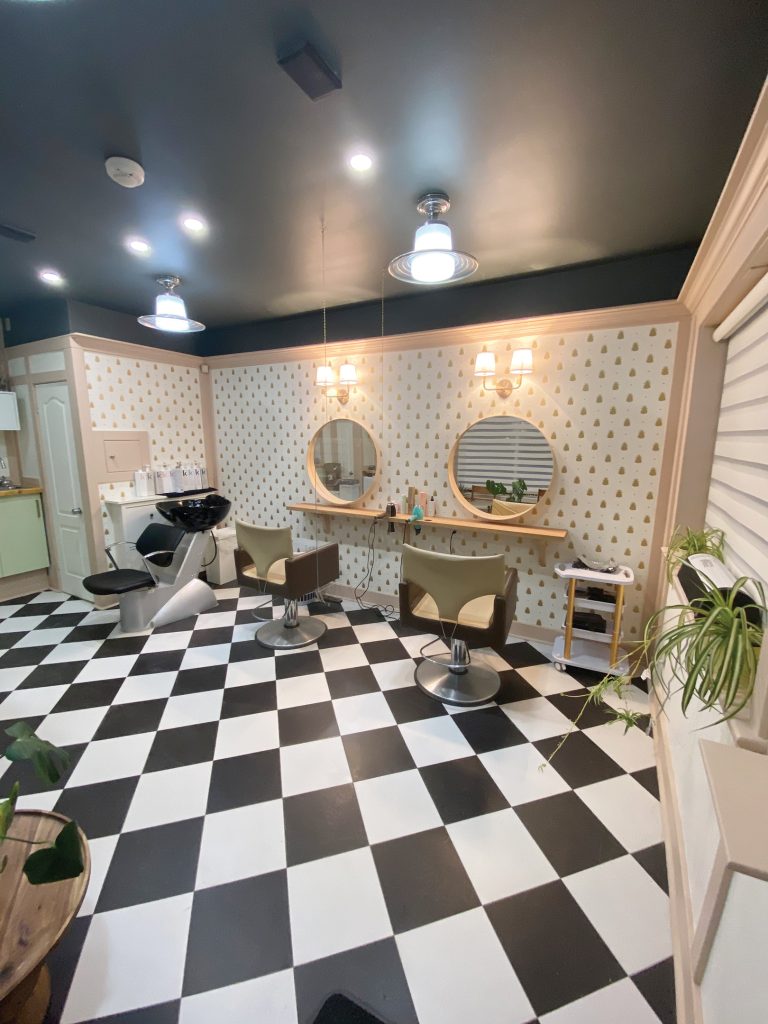
ApartMint will also be offering a wig recycling program at the salon.
As owner of her two businesses, Atkinson is self-employed. When she was diagnosed, she wasn’t paid for months when she went through chemotherapy and had to pay thousands for medication. Atkinson said the financial impact of cancer can be “devastating,” adding more stress for patients.
To help alleviate some of the pressure, ApartMint is recycling and reselling donated wigs. Atkinson said synthetic wigs usually cost a few hundred dollars while some real hair wigs can cost $1,500 or more.
In her own collection, Atkinson has three or four wigs that she no longer uses. She’s going to clean, style and resell them at a much reduced cost at the salon so that lower-income individuals can purchase them. She’s encouraging others to donate their wigs to the program.
“What do you do with your wig after you don’t need it anymore, right? It just sits there,” she said.
“The whole approach to both of my businesses is to be eco-friendly, and leave the least carbon footprint as possible, so then why are we throwing out wigs when we can reuse them for people who can’t otherwise afford them?”
To learn more about ApartMint, visit apartminthairstudio.ca.
